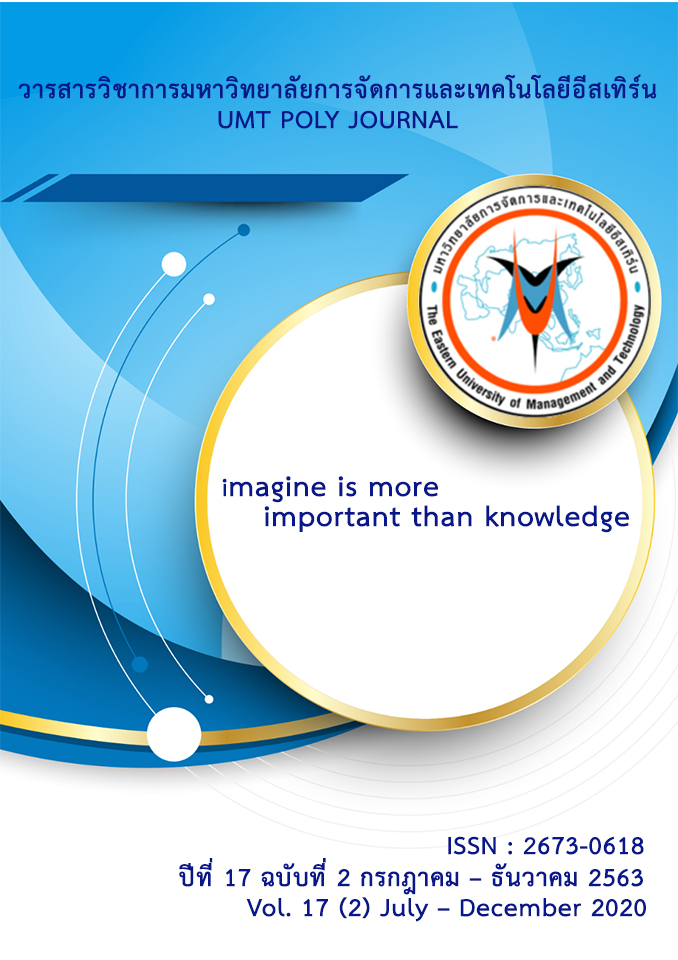Mergers and acquisitions behavior, ceo power and performance expectation gap after m&a——an empirical study of manufacturing enterprises listed on china growth enterprise market
Mergers and acquisitions behavior, ceo power and performance expectation gap after m&a——an empirical study of manufacturing enterprises listed on china growth enterprise market
คำสำคัญ:
Merge behavior, M&A with related party, M&A with non-related party, CEO power performance expectation gap after M&Aบทคัดย่อ
Based on the sample of manufacturing enterprises listed on the growth enterprise market from 2013 to 2017, this paper studies the relationship between merge behavior and performance expectation gap after M&A, and further explores the regulatory role of CEO power on the relationship between M&A behavior and performance expectation gap after M&A. At the same time, according to the previous research results, M&A behavior is divided into M&A with related party and M&A with non-related party to further investigate. The results show that M&A behavior is positively related to the performance expectation gap after M&A; M&A with related party is positively related to the performance expectation gap after M&A; non related M&A is positively related to the gap of performance expectation after M&A;CEO power can regulate the relationship betweenM&A behavior and performance expectation gap after M&A; CEO power can regulate the relationship between related M&A and performance expectation gap after M&A; CEO power can adjust the relationship between unrelated M&A and post-merger performance expectation gap.The results not only support the previous theory that the top executives, the largest shareholders and controlling shareholders use M&A behavior to "tunneling" the enterprise, but also enrich the relevant research on the performance expectation gap after M&A, and provide a certain reference for corporate governance.
Downloads
เอกสารอ้างอิง
Chen,W.R.(2008). Determinants of Firms’ Backward and Forward-looking R&D Search Behavior. Organization Science,19(4),609-622.
Chrisman,J.J., &Patel, P.C. (2012). Variations in R&D Investments of Family and Nonfamily Firms: Behavioral Agency and Myopic Loss Aversion Perspectives. Academy of Management Journal,55(4),976-997.
Doukas, J.A., &Petmezas, D. (2007). Acquisitions, Overconfident Managers and Self-attribution Bias. European Financial Management,13(3),1-48.
Greve, R. (2003). A Behavioral Theory of R&D Expenditures and Innovations: Evidence from Shipbuilding. The Academy of Management,46(6),685-702.
Guo, R., &Wen, Q.T. (2017). Success, failure and the choice of grey area. Nankai management review, 20(6), 28-41.
He, X.G., Lian, Y.L, &Zhang, Y.F. (2013). Business expectation and authority allocation within the family: based on data analysis of Chinese listed companies. Journal of management science, 16(4), 63-82.
Hu, Z., Xia, X.P., &Yu, M.G. (2013). Financial development, liquidity and commercial credit: an empirical study based on the global financial crisis. Nankai management review, 16(3), 4-15.
Li, S., Ye, C.G., &Qu, R. (2009). Research on the behavior of "tunneling" of major shareholders in major asset acquisition related transactions. Journal of management, 6(4), 513-519.
Li, S.M., &Zhu, T. (2005). Research on the relationship between managers' motivation and M&A performance. Economic management, (4), 4-12.
Lian, Y.L., Zhou, B., He, X.G., &Wen, D.W. (2015). Business expectations, management autonomy and strategic change. Economic research, (8), 31-44.
Song, T.B., Zhong, X., &Chen, W.H. (2017). Expectation gap and internationalization speed of enterprises: evidence from China's manufacturing industry. China's industrial economy, (6), 175-192.
Tang, Q.Q., &Han, H.W. (2018). Connected M&A and corporate value: governance role of accounting conservatism. Nankai management review, 21(3), 23-34.
Yao, H.X., &Sun, M.N. (2016). CEO overconfidence, CEO power and M&A performance. Journal of accounting, 27, 15-19.
Zhang, Q. (2013). CEO compensation, power rent-seeking and M&A performance: an empirical study based on China's listed companies. Journal of Zhongnan University of Economics and Law, (5), 115-122.
Zhang, Q, &Yuan, T.R. (2013). Analysis of CEO's power rent-seeking behavior in enterprise merger and acquisition: an empirical study based on the comparative perspective of state-owned enterprises and private enterprises. Journal of Shanxi University of Finance and economics, 35 (5), 81-93.
ดาวน์โหลด
เผยแพร่แล้ว
ฉบับ
ประเภทบทความ
สัญญาอนุญาต
ประกาศลิขสิทธิ์
เนื้อหาและข้อมูลในบทความที่ลงตีพิมพ์ในวารสารวิชาการมหาวิทยาลัยการจัดการและเทคโนโลยีอีสเทิร์น ถือเป็นข้อคิดเห็นและความรับผิดชอบของผู้เขียนบทความโดยตรง ซึ่งกองบรรณาธิการวารสารไม่จำเป็นต้องเห็นด้วยหรือร่วมรับผิดชอบใด ๆ
บทความ ข้อมูล เนื้อหาหรือรูปภาพ ฯลฯ ที่ได้รับการตีพิมพ์ในวารสารวิชาการมหาวิทยาลัยการจัดการและเทคโนโลยีอีสเทิร์น ถือเป็นลิขสิทธิ์ของวารสารวิชาการมหาวิทยาลัยการจัดการและเทคโนโลยีอีสเทิร์น หากบุคคลหรือหน่วยงานใดต้องการนำข้อมูลทั้งหมดหรือบางส่วนไปเผยแพร่ต่อหรือเพื่อกระทำการใด ๆ จะต้องได้รับอนุญาตเป็นลายลักษณ์อักษรจากวารสารวิชาการมหาวิทยาลัยการจัดการและเทคโนโลยีอีสเทิร์นก่อนเท่านั้น




